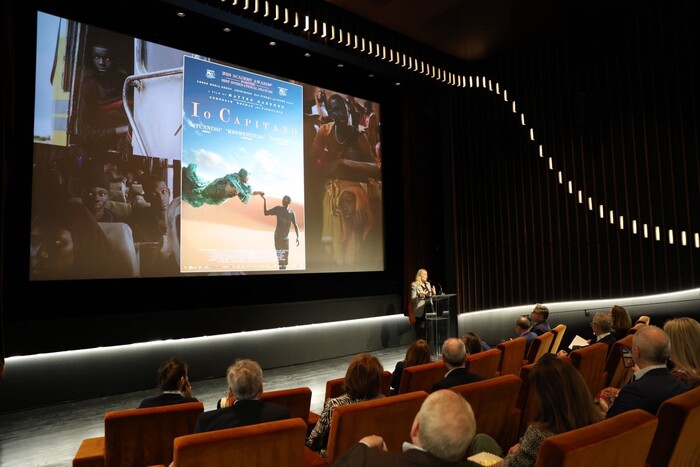Damascus-Sana
It came from the mantle of spoken poetry with its simplicity and adherence to the ground, to be the social drama series "Dafa", which recently launched its filming operations, the first works of the poet and writer Bassam Makhlouf.
The series directed by Sami Al-Janadi and produced by the Public Corporation for Radio and Television Production, Makhlouf says in an interview with SANA al-Thaqafiyyah: “Dafa is not my first work that I write, but rather it was preceded by other works, but it is the first to see the light and I sought through it because I shed light on an issue that I find very important and related to the conflict that is Our youth live it between staying at home or traveling. ”
Makhlouf added: “I wrote the work in 2017 with the aim of encouraging young people to adhere to their homeland, work and insist on success in order to advance Syria again, as the heroes of the series, who are university graduates, suffer from unemployment, but they decide to challenge the difficult conditions and set up a restaurant they run themselves and become the focus of attention of people and visitors to the country,” expressing He expressed his hope that the work will be admired by the public when it is shown in the upcoming Ramadan season.
Makhlouf, who loved the spoken poem and wrote it in his own way, carves its letters to be an artistic painting that simulates the imagination of lovers and has an imprint with a number of poets by establishing an annual festival of zajal and spoken poetry in Syria. He also had several participations in festivals, forums, poetry evenings and television interviews. The Syrian Arab soldier was a solid pillar in his poems. He wrote about the homeland, resistance, love, spinning, motherhood, separation, loyalty and sadness, blaming life and its cruelty.
Makhlouf describes spoken poetry as “the easy-to-do and the closest to the conscience and conscience of people,” indicating that his first poetic verses were inspired by the beauty that he sees as a source of inspiration. Every person writes poetry and does not love beauty, he is not a poet.
And Makhlouf considers that beauty is not limited to women and their femininity, but is also present in nature and its greenness and with the combat soldier, his victories, life with its bittersweet and all that stirs up beauty in himself.
Makhlouf was influenced by our great poets such as Al-Mutanabi, Qais bin Al-Mallouh, Muhammad Mahdi Al-Jawahiri, and others. As for the poets of Al-Mahki, he confirms that he did not leave one of them who heard about it except that he read to him, such as Talal Haidar, Omar Al-Farra, Abdul Rahman Al-Abnoudi, Michel Trad, Karim Al-Iraqi and Issam Al-Abdullah.
Concerning the connection of the spoken poem with singing, Makhlouf explains that when the singer seeks a song he sings, he goes to a poem that is from the eyes of the spoken poetry and searches for the depth of emotion and sincere feelings that occupy a wide area in his heart and mind.
Makhlouf also celebrates the rhyme in his poems, decorates and decorates them within a single poem, and on that he shows that he writes like a composer who puts his musical scores, sometimes louder with words, and sometimes he goes towards calmness, and here the beauty of the poem, in his opinion, stirs the feelings of the listener.
Makhlouf asserts that the spoken poetry is closest to the consciousness and conscience of people, and thus the spoken poem goes to the farthest extent in expressing the feelings, feelings, worries and problems of people.
Makhlouf expresses his regret that spoken poetry does not receive much attention today from cultural institutions, as some reject it because, according to his opinion, they do not know how to express it, noting that the spoken poem is very old and had a presence in the poems of ancient Arab tribes that had several dialects and is a daughter The eloquent poem derives its roots from the language of Dhad
Rasha Mahfoud


/cloudfront-eu-central-1.images.arcpublishing.com/prisa/TGZ4TIGSGJFWBISZ2FULJ7BYDQ.jpg)
/cloudfront-eu-central-1.images.arcpublishing.com/prisa/V6VLZTYXJFDXBNZJHIT2VDJVFY.png)


/cloudfront-eu-central-1.images.arcpublishing.com/prisa/EZG362ECHRGPPB3J5BIOF3QB7E.jpg)


